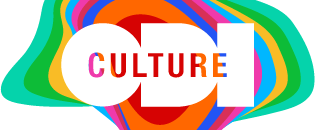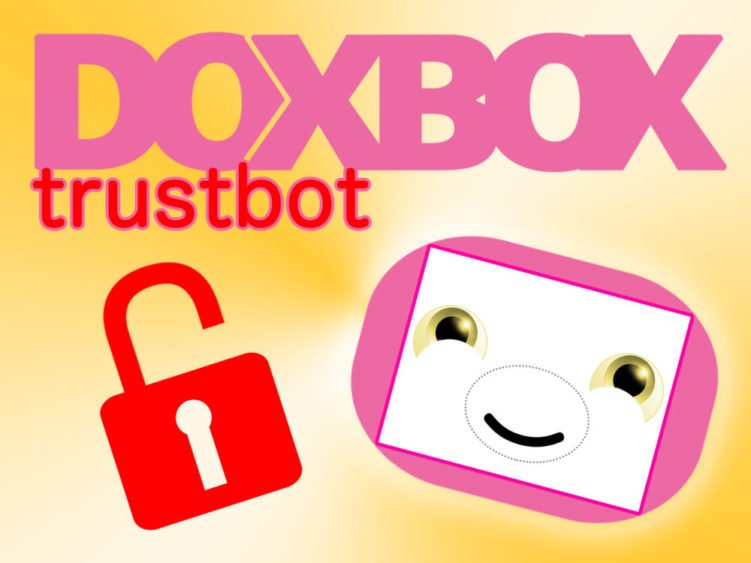
Curated by Hannah Redler Hawes, Julie Freeman and Anna Scott | Design: Adrian Philpott, Philpott Design Copy That? Is the ODI's Data as Culture research and partnership season for 2019–2020. It encompasses an exhibition at the ODI and separate but interconnected installations, performances and events at our HQ and elsewhere.
Copy That? asks: how ‘true’ is the ‘data you’ and how many versions exist online? From the myth of the perfect digital copy to the benefits and pitfalls of simulation, we question the purpose and trustworthiness of incessantly reproduced data. What gets lost or gained in translation? How important are corruption or interference to creating and revealing ‘true’ copies? Moreover, as the internet creaks under the volumes of data being copied and shared, servers heat up, fuelling growing concerns about our climate. What number and kind of copies should a healthy internet be able to sustain?
We are open to discuss collaborations with other potential partners. Get in touch here.
Copy That? artists
<replaced_element></replaced_element>Data is telling tales about us. Can we trust these stories? DoxBox trustbot is a hot-pink ‘puppet-robot-hybrid’ who wants to chat. Through conversation with us, DoxBox trustbot builds impressions about us based on what we do or don’t share and which organisations do or don’t collect data about us. It wants to find out how carefree or cautious we are with data. DoxBox trustbot rewards participants for sharing with its own unique and exchangeable ‘Trust Credits’. While seemingly an AI, its interactions are controlled by the artist as he enacts the typical traits of technology as a “tech drag” performance.<replaced_element></replaced_element>DoxBox trustbot helps us consider trustworthiness of those we share data with, and how many data versions of ourselves we create online. We also consider how data collected about us might change if factors like our age, gender or nationality are different. What are the benefits or burdens of our data doppelgangers? When should we question the hard evidence that data seems to provide? DoxBox trustbot draws attention to the humanity or inhumanity of algorithmically and electronically-mediated relationships.
Where to see DoxBox trustbot
- PERFORMANCE: May 2020 Leeds International Festival (date to be confirmed) as part of the Furtherfield Future Fairness event. Please register interest here.
- EXHIBITION: Documentation and DoxBox ephemera will be on display at the ODI, London from 5 February 2020 by appointment as part of our Data as Culture research and partnership season for 2019–2020, Copy That? Surplus Data in an Age of Repetitive Duplication. Book your appointment here.
Booking a DoxBox trustbot performance
DoxBox trustbot is available for private performances and events. Artist fees may apply. Trust us, you’re worth it. Please contact us.
Video: Alistair Gentry, DoxBox trustbot 2019 (3 minutes)Video: Alistair Gentry, DoxBox trustbot 2019 (1 minute)----- Artworks created following a nine-month residency at the ODI in London in 2018 and 2019. Commissioned by ODI Data as Culture and produced as part of an ODI R&D project exploring data trust and sharing, funded by Innovate UK
---- Alistair Gentry (UK) is an artist and writer, amongst other things. He lives in the UK, currently in London. He likes “silly costumes, museums, absurdity, and making machines do things their manufacturers wouldn’t approve of". Wikipedia classifies him as a “Science Fiction Artist” and he is not sure what that means.Interactive performance documentary | Dimensions and duration variable. .
Mr Gee’s poems draw on histories of human relationship, offering us a way through the blur and noise of overwhelming volumes of data, and putting ‘the machines’ in perspective. In Ticket to Fly, Mr Gee is looking forward to his holiday. But his dark skin and hair raise questions at airport security. Might a resemblance to someone in their database lead to an unwelcome encounter with Guantanamo? The question of ‘who’s judging who’ is further explored in Just Data. The poem prompts us to consider which of our past, present, or predicted online identities we might be measured by. The Open Hand considers the trust that is embedded in a human handshake. Mr Gee riffs on how the qualities at the heart of the open data movement – openness, trust and sharing – have always allowed different groups of people to extend ideas and connections across borders. Meet the Data explores where we find truth and friendship in data that reflects our world, and also takes on our obsession with quantification. The poem ends with an appeal for us to think of the living people behind the likes.<replaced_element></replaced_element>Bring Me My Firetruck 2019<replaced_element></replaced_element>Animation of William Blake’s Jerusalem running through the 24 official languages of the European Union and Welsh via Google Translate | Commissioned by ODI Data as Culture | Production: Translating Nature (Julie Freeman, Stephen Wolff) | Arrival icon by Daniela Baptista from the Noun Project | Plane icons by Denis Sazhin from the Noun Project | Country flags via flag-icon-css | Split-flap animation adapted from Flapper
-----
William Blake's poem Jerusalem has been hailed as the unofficial English anthem, the defining narrative of this ‘green and pleasant land’. But, by subjecting Blake's mastery of language to the forces of Google Translate, which uses artificial intelligence to translate a chosen language into another, other tales of England begin to emerge.
In Bring Me My Firetruck, poet Mr Gee explores the ‘soul of Brexit’ through combining Blake’s poem with the visual metaphor of an airport arrivals board. As we stare at the board, incoming planes are landing from countries of the European Union, bringing with them the free movement of people, the free movement of language, and the free movement of interpretation.
By translating the English poem through the 23 other official languages of the European Union and Welsh, Mr Gee reveals a rib-tickling series of new versions: ‘O Clouds unfold’ becomes ‘Get my bed’ and ‘Bring me my Chariot of fire!’ is transformed into the title of this new piece, ‘Bring Me My Fire Truck’. Old meanings deteriorate and new ideas emerge according to algorithmic assumptions and corruptions. The poem’s point of view shifts between the sinister, the banal, and the absurd, raising a few wry smiles along the way.
------
Mr Gee (UK) is a veteran of the UK's spoken word scene and a BBC radio presenter. Gee champions promoting unheard voices in society, in part through his extensive rehabilitation work in prisons. He has delivered TEDx talks, starred in West End shows and is known as "Poet Laureate" on Russell Brand's SONY award-winning radio show. His published and performed works are regularly featured across UK mainstream media.
<replaced_element></replaced_element>Mood Pinball 2019 | Ben Neal, Edie Jo Murray and Harmeet Chagger-Khan | Digital pinball machine with custom software and bespoke graphics on wooden frame
What’s your city sweet-spot? Mood Pinball playfully reimagines how city-wide data might be used by an individual to find their comfort zones, and improve their experience of a city. It invites us on a sonic journey through the dreamlike city-scape of neurodiverse artist Edie Jo Murray. The otherworldly qualities of her highly stylised graphics and rich saturated colours are based on her experience that autistic people can “feel like aliens”.
For Edie, her sensitivity to noise – which has an impact on how well she feels at different city locations – is part of this. The goal of Mood Pinball is to keep its Mood-o-Meter at ‘happy’, by responding to noise-level data revealed by gameplay. Accessing data about noise levels in public spaces is difficult, so the data in this artwork has been synthesised by computer scientists at Southampton University. Mood Pinball acts as a reminder that citizens, as well as businesses, need to use information and data to better understand the world and improve people’s lives.
Mood Pinball was created following a series of workshops for autistic and neurodiverse people at BOM in Birmingham in 2018. We are grateful to the participants, who wish to remain anonymous, for their insights.
Commissioned by ODI Data as Culture in partnership with the University of Southampton Data Stories project, supported by the EPSRC, grant number EP/PO25676/1. Produced by BOM centre for art, technology and science, Birmingham.
- Participating artists with completed projects: Harmeet Chagger-Khan, Mr Gee, Alistair Gentry, Edie Jo Murray, Ben Neal
- Participating artists with projects under development: Boredom Research, Anna Ridler, Antonio Roberts and Alan Warburton
We are grateful to the funders and partners acknowledged alongside each work, who have made these pieces possible.
We are also grateful to the following artists and cultural practitioners for their previous and ongoing contributions to the theme: Ruth Catlow and Charlotte Frost (Furtherfield), Jonah Brucker Cohen, Scott Delahunta (Coventry University), Free Ice Cream, Bruce Gilchrist, Wesley Goatley, Natalie Kane, Giles Lane, Sefanie Posavec, Special Branch, Claire Selby, and Catrina Ure.
Project links
